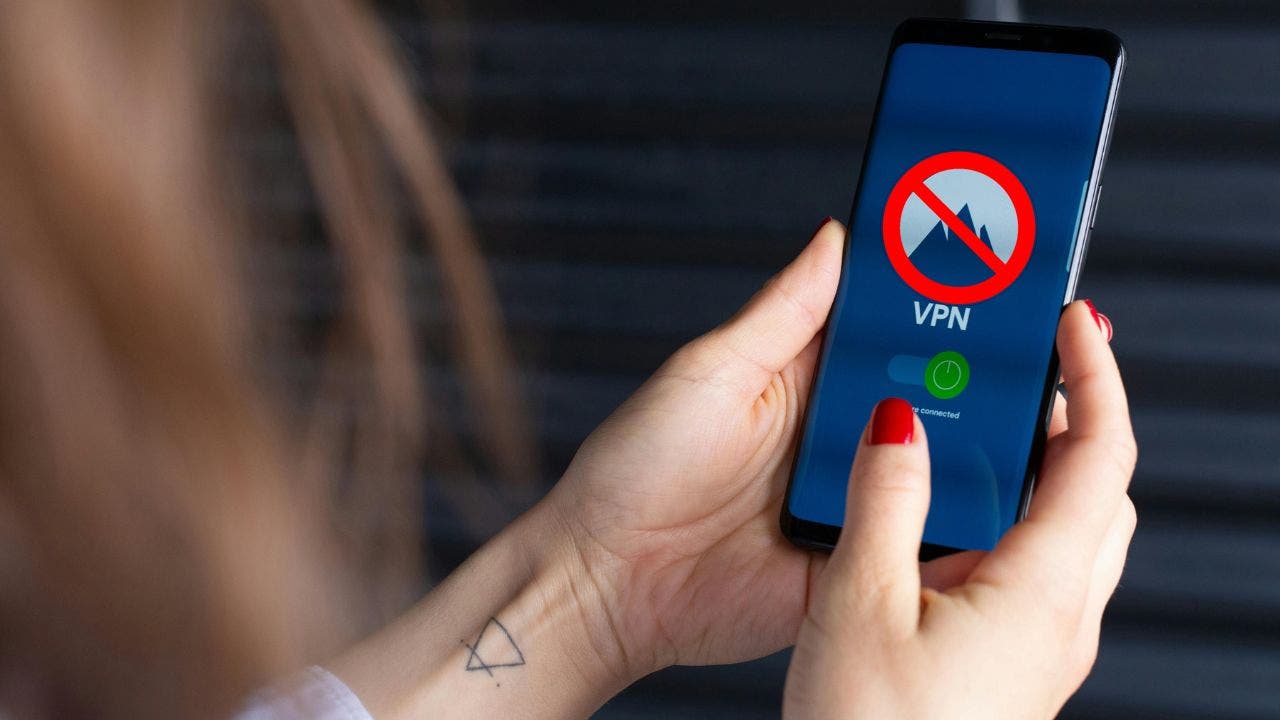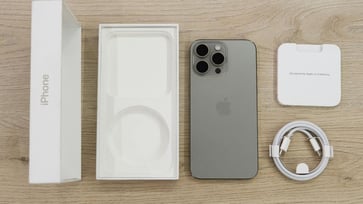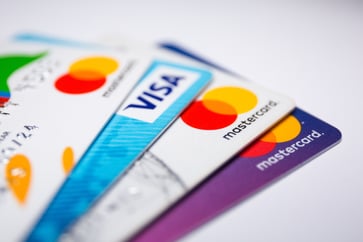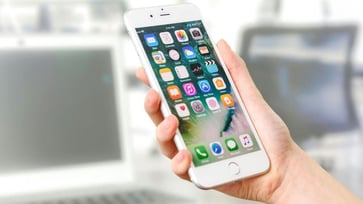Cyberattack tools can be disguised as VPNs through malicious apps.
Discover ways to protect yourself from potentially harmful apps.

If you value your data and privacy, VPNs are crucial. They establish a secure, encrypted link between your device and the internet, concealing your IP address and safeguarding your online actions.
Not all VPN apps are trustworthy; some are fraudulent and aim to steal your personal information.
In the third quarter of 2024, the number of users encountering fake VPN apps increased by 2½ times compared to the second quarter globally. These apps were either malware or programs that could be used by malicious actors.
The increase in fake VPN apps is a concern, and here's how to protect yourself.

What you need to know about the surge in fake VPN apps
In May 2024, law enforcement shut down a botnet that was created using several free VPN services, including MaskVPN, DewVPN, PaladinVPN, ProxyGate, ShieldVPN, and ShineVPN.
As a result of installing VPN apps, their devices became proxy servers, directing other internet traffic.
Over 19 million unique IP addresses in 190 countries make up this massive botnet, which may be the largest ever created. Those controlling the botnet sold access to infected devices to other criminals, who utilized them for cyberattacks, money laundering, and fraud.

Don’t trust free VPNs
Free VPN apps may not prioritize your safety, so it's essential to exercise caution.
- Data sharing: Many free VPNs share user data with third parties.
- Free VPNs with weak encryption pose a threat to your online security, as about 36% of them use such encryption methods.
- Almost 90% of free VPNs disclose some information, with 17% revealing more than necessary.
- Unreliable connections: More than half of free VPNs have unstable connections.
- Almost 70% of people request permissions they don't need, such as tracking their location (20%) or accessing their installed apps (46%).
Why people fall for fake VPNs
The demand for VPN apps is increasing across all platforms, including smartphones and computers. While users may think that finding a VPN app in an official store, such as Google Play, means it's safe to use, this is not always the case. Free services can often be a trap.
Choose trusted VPN services for optimal security and privacy
If you need a VPN, choose a well-known, trusted service that is not free. Look for those that are discussed on mainstream sites and have positive reviews. If you're unsure where to begin, I've compiled a list of my top VPNs. I've personally tested them and can assure you they will keep your data safe. For the best VPN software, check out my expert review of the top VPNs for secure browsing on your Windows, Mac, Android, and iOS devices.

7 important tips for choosing and using VPNs
To ensure your online privacy, follow these seven crucial steps to select a trustworthy VPN.
Trusted official app stores are the safest option for downloading apps. These platforms, such as the App Store for iOS and Google Play Store for Android, have security measures in place to detect and remove fake or harmful apps. It's important to avoid downloading apps from random websites or third-party stores, as they are more likely to host malicious software. Even on official stores, it's crucial to check the app's reviews, ratings, and download count to ensure its trustworthiness.
Be cautious when granting app permissions during installation, and only allow permissions that align with the app's functionality. Review and manage app permissions in your settings on both iOS and Android to ensure you have not granted unnecessary permissions.
To enhance security beyond a password, implement two-factor authentication (2FA) for your VPN accounts.
Ensure that all VPN-related software, including clients, servers, and networking hardware, are updated regularly to receive the latest security patches and enhancements.
Protect your data with VPN services that employ strong encryption protocols like AES-256.
Keep track of VPN traffic and logs to detect any unusual patterns that could signal security problems.
7. Protect your device with a robust antivirus software: A powerful antivirus program can help detect and remove malware before it harms your device. Many antivirus apps also include features such as web protection, anti-phishing tools, and the ability to scan new apps for threats. While there are free options, premium versions often provide more comprehensive protection. Choose a reputable cybersecurity brand when selecting an antivirus solution.
Kurt’s key takeaway
Free VPN apps may seem convenient, but they can pose a serious threat to your online security. They often have weak security measures, leak your data, or demand permissions that compromise your privacy. To safeguard your online activity, consider investing in a reliable, paid VPN service.
Please inform us at Cyberguy.com/Contact how frequently you verify the trustworthiness of apps you install.
To receive more of my tech tips and security alerts, subscribe to my free CyberGuy Report Newsletter by visiting Cyberguy.com/Newsletter.
Follow Kurt on his social channels
Answers to the most asked CyberGuy questions:
New from Kurt:
Copyright 2025 CyberGuy.com. All rights reserved.
tech

15 things to do or try first when you get a new iPhone: 1. Set up your phone with your personal information and preferences. 2. Install your favorite apps and games. 3. Connect your phone to your Wi-Fi network and other devices. 4. Take a few photos and test out the camera. 5. Set up your email and other accounts. 6. Enable security features like Touch ID or Face ID. 7. Customize your phone's settings and appearance. 8. Explore the built-in features and apps on your phone. 9. Connect with friends and family on social media. 10. Set up reminders and alarms. 11. Use the phone's built-in voice assistant. 12. Download and install new apps from the App Store. 13. Set up your phone's screen time and parental controls. 14. Enable automatic updates for your apps and software. 15. Back up your important data to cloud storage or an external hard drive.
techYou might also like
- Five top home inventory apps to safeguard your property during an emergency
- Your smart home gadgets will soon receive a new security seal of approval.
- This year, save time, privacy, and money with these 10 tech upgrades.
- Is your Windows 11 PC frequently restarting? Let's resolve this annoying issue.
- Sony's entry into the electric vehicle market is a surprising move.


















